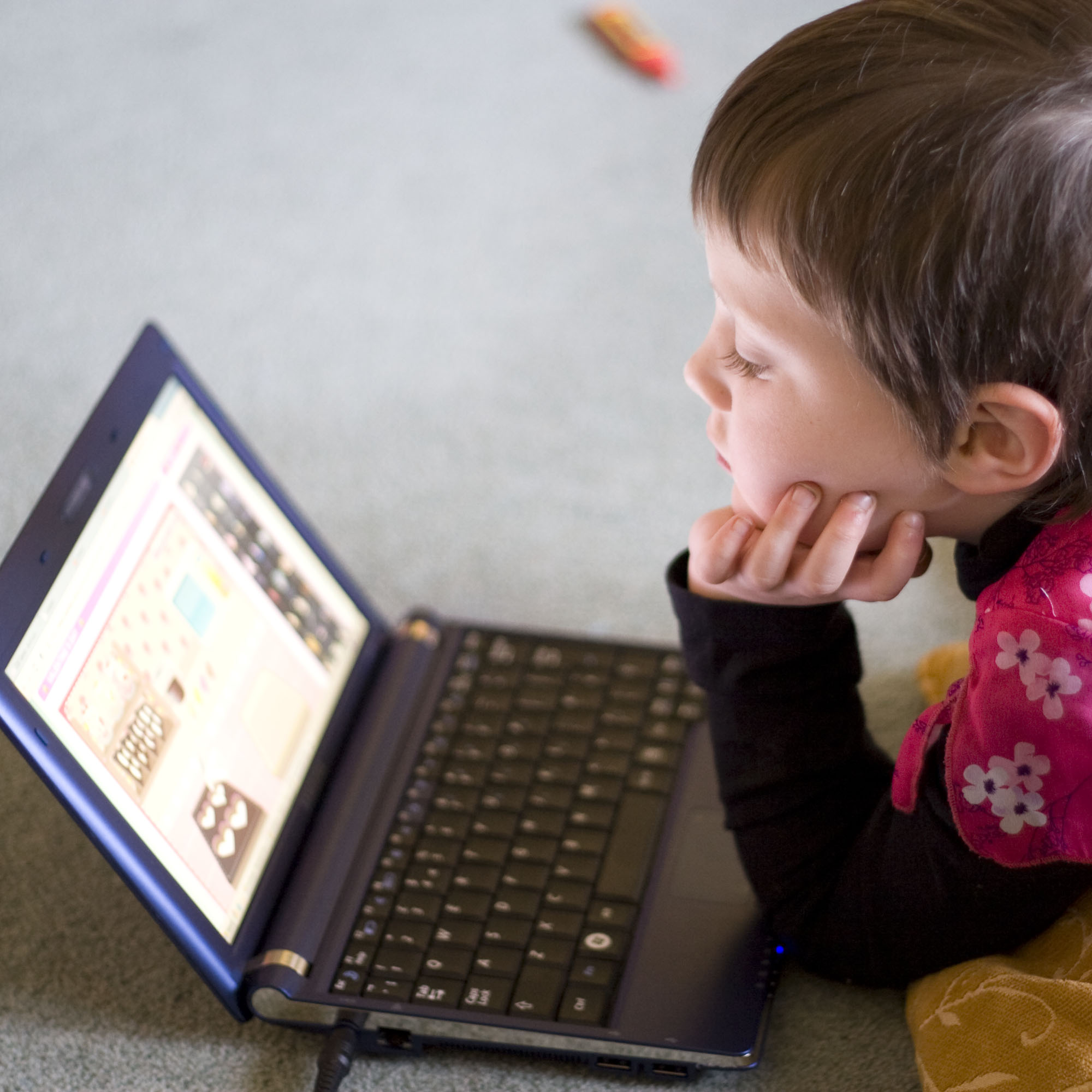Over the last month I have been forced to confront a new emerging reality. One where parents, and women in particular are unable to access information and support on birth, and parenting because of telephone, website and internet adult-content blocks and censorship.
I am facing a new world where as a parent I must choose between essentially turning on the porn and violence (assuming that remains an option) or being unable to access a vast number of websites about breastfeeding, birth, babies, parenting and health. These are precisely the sites that parents need to be able to access in order to make informed choices about their children, but the very filters intended to protect children prevent this.
As a responsible parent you would think that blocking adult content is a good thing – I personally do not want my children stumbling across hard core pornography and violence online. But in practice, whether you think it is a parental responsibility alone or whether governments, phone companies and ISPs should take the initiative and block content, the reality that is emerging is that this type of filtering doesn’t always (or maybe ever) work.
My story starts a with an awareness of the problems faced by many women on Facebook. Facebook has a reputation for banning pictures of women breastfeeding.
The issue became more personal at the end of July when I found that mobile phone company 3Â was blocking one of the world’s most highly regarded parenting and breastfeeding websites -Â kellymom.com. As a mother I have relied heavily on the information on this evidence-based website for years. Â Now if you go and look at it (if you can) this site isn’t even full of pictures of half naked women – which as a breastfeding website would actually be entirely appropriate. Many women have problems breastfeeding and one of the factors behind this may be that most of us have never seen a baby feed. Four weeks later – kellymom is still blocked and I am informed that the matter has been passed on to the relevant department, but that rectifying it will take an unspecified amount of time and involve complicated policy decisions by a team of people.
On the same day I discover another blocked website. The International Society for the Study and Prevention of Perinatal and Infant Death (ISPID) is a not-for-profit organization that is leading the world in discovering evidence-based preventive measures for stillbirth and sudden infant death. So it looks less and less like some kind of mistake based on porn websites with a similar name to Kellymom though this initially seemed to be a possibility.
This morning I decided that if these two sites were being blocked I would spend an hour seeing what else is inaccessible through 3. So I carried out some simple searches starting with terms such as birth choices. And voila! – in a short space of time I’ve a list of about twenty websites providing information and services to parents and parents-to-be that are blocked by my telephone network. These range from the internationally renowned KellyMom, to the Royal College of Midwives
http://kellymom.com/
http://ispid.org/
http://www.rcmnormalbirth.org.uk/
http://www.aims.org.uk/
http://midwifery.org.uk
http://independentmidwives.org.uk/
http://wearyourbaby.com/
http://altbirthchoices.com/
http://positivebirthchoices.com/
http://doula.org.uk/
http://www.mothersmate.co.uk/
http://www.independentmidwives-southeast.co.uk/
http://www.independentmidwives.com/
http://hypnobirthing.com/
http://hypnobirthing.co.uk/
http://www.thehypnobirthingcentre.co.uk/
http://activebirthcentre.com/
http://pregnancyandparents.org.uk/
http://www.bellybelly.com.au/
http://activebirthpools.com/
http://thenewbornbaby.com/
http://expressyourselfmums.co.uk/
None of these sites have adult content, they are all aimed at the very people who are likely to choose to have parental controls turned on. They range from small businesses, to birth classes, to the Royal College of Midwives!
So why does this matter? It matters because it isn’t clear what criteria these companies use, and it isn’t easy to get these websites unblocked. Blocking sites like this makes a mockery of the idea of parental controls, just at the point where they are about to be rolled out by ISPs. In order to be an informed and responsible parent, and to make the best decisions for our families and children will we have any choice other than to turn off all parental controls?




Not that it would excuse the censorship, but is there any way that it might be getting censored based on keywords like “breast,” “nipple,” and “vaginal”? The prevalence of those and related words would be high on those websites. I wonder if it was laziness more than intention…? I don’t know, I could be totally wrong. It definitely deserves a spotlight!! And you deserve a new phone company! Limited access to the web seems like a good loophole to use to get out of a contract.
Can you claryfy whether you are using the three network in the uk or abroad
I’m using pay as you go in UK
Those key words don’t explain these sites being blocked – SIDs prevention has nothing to do with any of those things. Vaginal and nipple might I suppose as the terms are used for describing one type of birth and nipples are very important in breastfeeding support! But the search term where I got virtually every top result blocked was birth (then combined with choice, hypnosis or active or doula or midwife).
Although most of the organisations concerned in UK with enabling women to make choices about birth were blocked – the main Royal College of Midwives and the NCT weren’t. None of the main UK breastfeeding organisations were blocked either. So there seems very little reason for some being blocked and not others.
It isn’t really about my personal access. The issue is that I don’t want any parent to be blocked from seeing parenting websites. I could just turn off adult-content filtering, or change phone company. But these filters are about to be rolled out by big ISPs too so it is important that they work for those who choose to use them.
Another one – http://birchmidwife.co.uk .
It looks like websites of individual midwives and antenatal services are particularly at risk of being blocked by 3. They may well be a huge number of these blocked. So a bit more research reveals these blocked sites:
http://www.wellmother.org
http://nurturingbirth.co.uk
http://hackneydoula.co.uk
http://www.rightsofpassagemidwifery.com/
http://www.mayamidwives.co.uk/
http://www.sagefemme.co.uk/
http://www.londonbirthpractice.co.uk/
http://www.midwifemal.co.uk/
http://www.3shiresmidwife.co.uk/
http://www.southlondonindependentmidwives.co.uk/
http://www.veronahall.co.uk/
http://www.independentmidwives-southeast.co.uk/
http://www.wlim.co.uk/
http://www.mk-midwife.co.uk
Twelve of the twenty Independent midwives closest to me listed on http://independentmidwives.org.uk/ are blocked. That is more than half.
Hypnosis and birth appears to be a virtual guarantee of being blocked.
Adding to hypnosis ones already listed
http://natalhypnotherapy.co.uk
http://hypnosisforbirth.com
http://birthrelaxationkit.com
http://www.childbirthjoy.com/
Also yoga or active and birth:
Adding to Active Birth Centre:
http://yogabirth.org
http://yoga4birth.co.uk
http://activebirth-oxford.co.uk
http://birthwise.net
Birth pool hire: (haven’t searched specifically for these but have found two birth pool companies so far)
http://www.eaubaby.net
These are all from a short quick set of searches not going further down Google search results than the first page for each search.
Since maternity services seem to be blocked I checked a few other sites listed at the (unblocked) MSLC websites. This lists key organisations in maternity services.
Blocked sites:
TAMBA http://www.tamba.org.uk/
Tiny LIfe http://www.tinylife.org.uk/
Maternal Link http://www.maternallink.com/
The Miscarriage Association http://www.miscarriageassociation.org.uk/
Birth Trauma Association (BTA) http://www.birthtraumaassociation.org.uk/
Precisely the sites parents should be able to access. These are particularly worrying because these sites provide services to parents in particularly difficult circumstances.
While this is troubling, I do just wonder about this slight logical fallacy: that responsible parents would need parental controls turned on on their phones. What are their children doing with unsupervised access to their parents’ phones? I don’t have parental controls set on my 3 phone. Until this issue came to my attention I didn’t even know my phone had the option of parental controls. I simply have a passcode lock on my phone so my 3 year old can’t do anything with it if he happens to get hold of it.
Thanks Holly
Putting aside the bigger questions of ethics, information as a human right, corporate accountability, etc.
Personally – I don’t think I can turn off adult-content as it comes turned on with a Pay As You Go phone from Three and I do not have a credit card, passport or photo ID driving licence, so it appears that I may well not be able to turn it off. Three no longer have it turned on by default on contract phones.
But most importantly whilst at present adult-content blocking is only on mobile phones, from October it will be rolled out by major ISPs. So I believe it is important to be aware of the problems with the technologies that may be used, and potential accountability issues that will affect a much larger number of people in the future.
We don’t know yet how this will be done – whether households will have to opt-in or opt-out. But this is not devise based – it will apply to a whole household. I will not be having it, but many parents may choose to have it on thinking it is a good thing. Up until they point they discover that non-adult content is blocked. A lot will depend on how ISPs deal with this, but phone companies have had a long time to get the hang of this and my experience is that it doesn’t work.
I am hoping that ISP parental controls will be better thought out and able to deal with multiple household members, and give parents control in choosing subjects and individual websites to block rather than creating the kind of problem I have been having with Three.